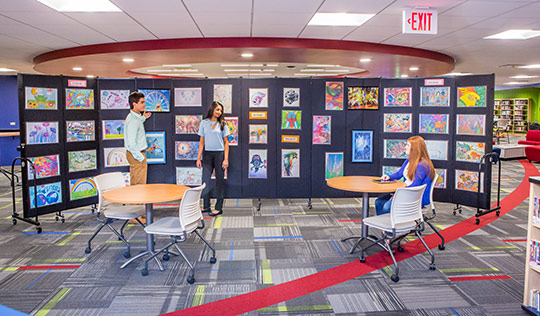The Power of Drama – How Theater Transforms Lives
Theater is an art form that has the power to captivate, inspire, and transform lives. It brings together actors, directors, designers, and an audience to create a shared experience that can be thrilling, thought-provoking, and emotionally impactful. In this blog post, we will explore the profound impact that theater can have on individuals and communities, and how it can contribute to personal growth, empathy, and empowerment.
1. Building Confidence and Self-Expression:
Participating in theater can boost confidence and help individuals develop strong communication skills. Being on stage requires actors to overcome shyness, fear of public speaking, and perform in front of an audience. This process promotes self-expression, encourages creativity, and enhances self-esteem. Theater provides a safe space for individuals to explore different emotions, identities, and perspectives, allowing them to discover and embrace their true selves.
2. Fostering Empathy and Understanding:
Through storytelling and character portrayal, theater facilitates empathy and understanding. Actors dive into the minds and emotions of their characters, enabling them to develop a deeper understanding of different human experiences. Audiences also benefit from this process, as they witness the struggles, joys, and vulnerabilities of diverse individuals portrayed on stage. This exposure to different perspectives helps break down stereotypes and fosters empathy, creating a more compassionate society.
3. Promoting Cultural Awareness and Diversity:
Theater often showcases a variety of cultures, traditions, and historical events. By exploring different stories and perspectives, theater promotes cultural awareness, acceptance, and celebration of diversity. Audiences are exposed to a wide range of experiences, fostering a deeper understanding and appreciation of different backgrounds. Theater can challenge societal norms, educate on social issues, and create dialogue, inspiring positive social change.
4. Strengthening Collaboration and Teamwork:
Theater is a collaborative art form that requires teamwork and cooperation. Actors, directors, designers, and technicians all work together towards a common goal of creating a compelling production. Through this collaborative process, individuals develop essential skills such as communication, problem-solving, and adaptability. Working as part of a team in theater nurtures a sense of community and teaches individuals the value of collective effort.
5. Providing a Platform for Social Commentary:
Theater has a long history of reflecting and commenting on social issues. Productions often tackle topics such as inequality, discrimination, and human rights. By addressing these pressing issues, theater provokes thought, challenges societal norms, and encourages conversations that can lead to real change. The power of theater lies in its ability to provoke strong emotions and incite action, inspiring individuals to become agents of positive social transformation.
In conclusion, theater has the power to transform lives and society as a whole. It provides individuals with a platform for self-expression, fosters empathy and cultural understanding, nurtures collaboration and teamwork, and addresses important social issues. Engaging with theater, whether as a performer or audience member, can lead to personal growth, increased awareness, and empowerment. Let us embrace the power of drama and appreciate its ability to inspire, educate, and transform our lives.











